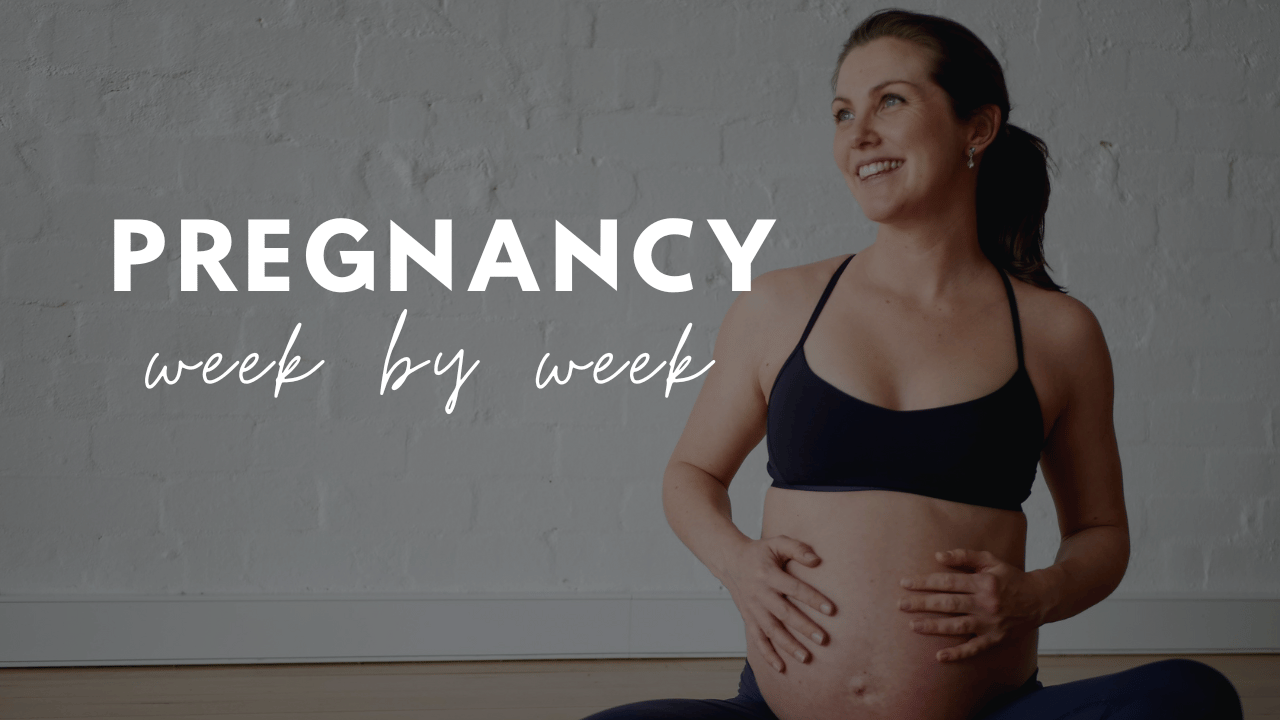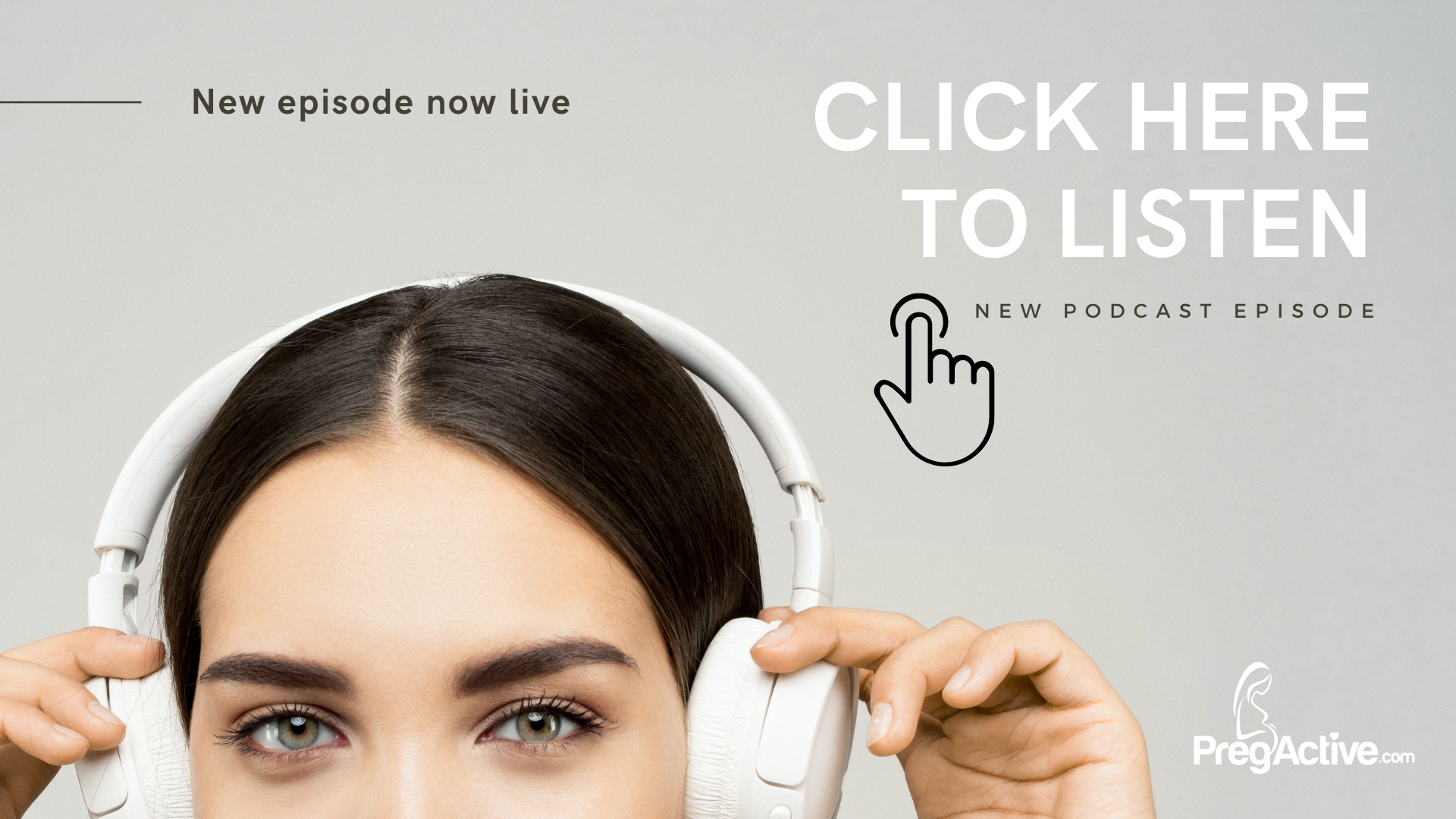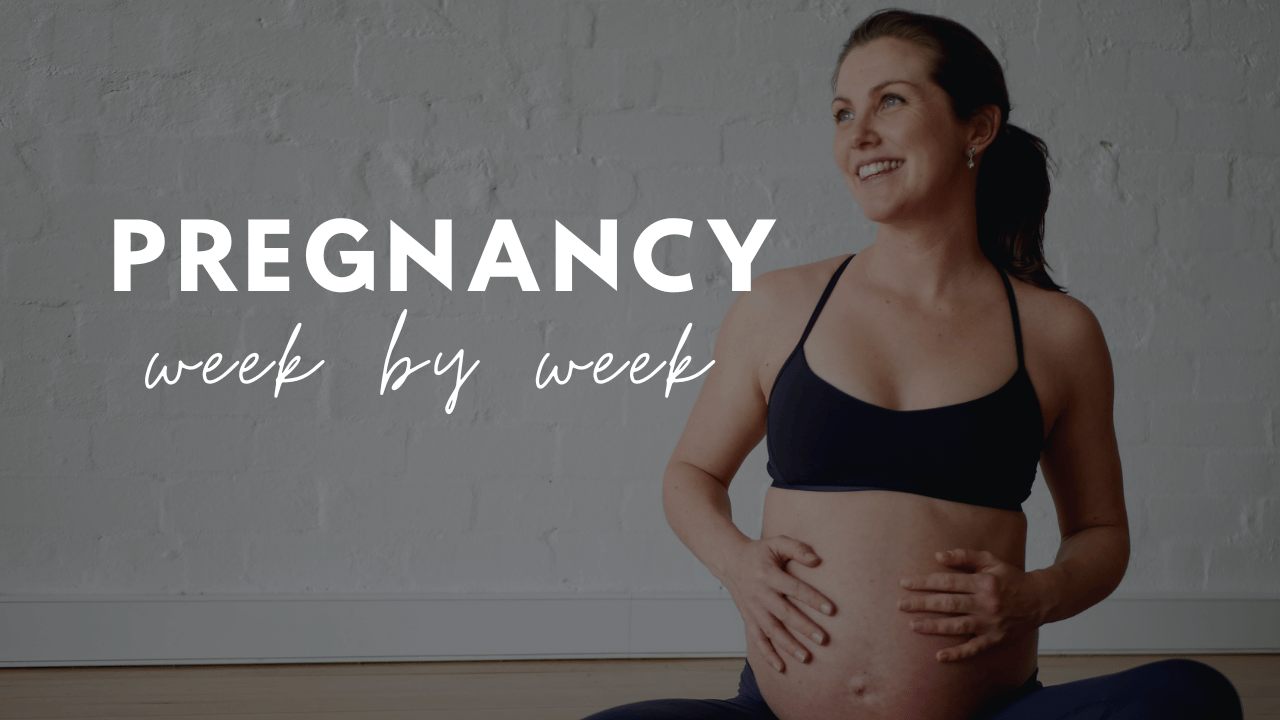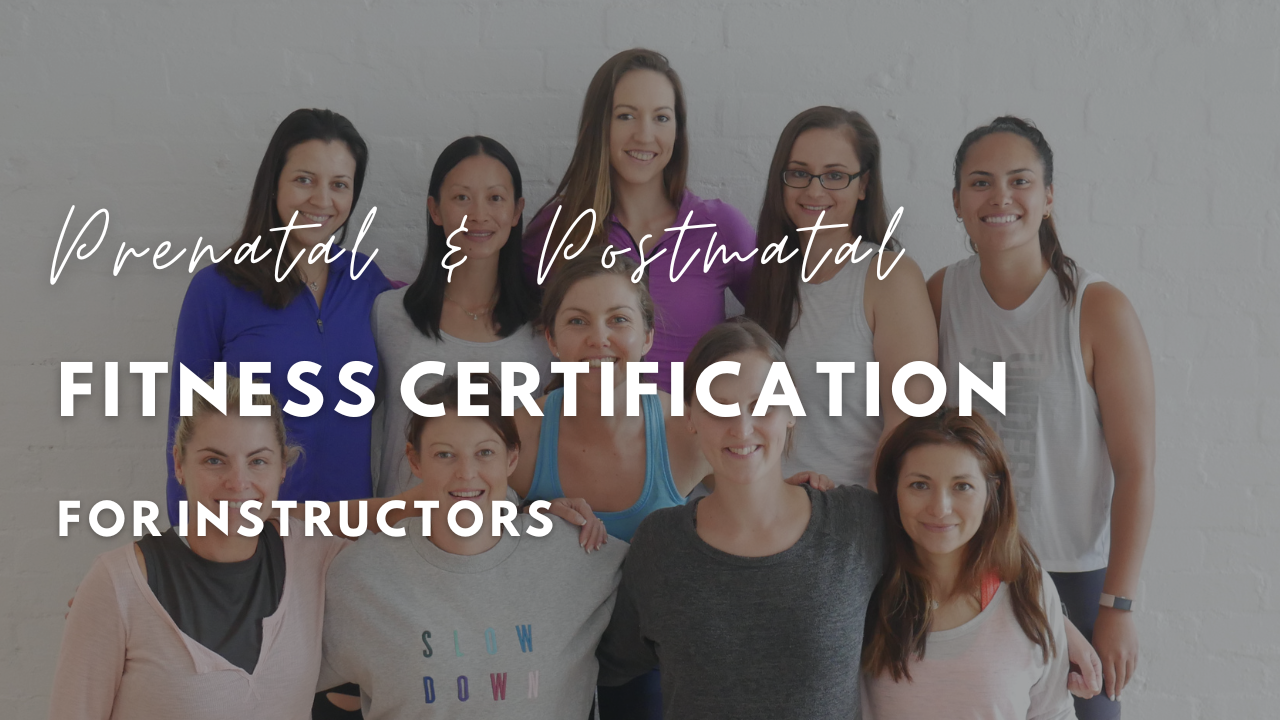Can I Continue Running while Pregnant?
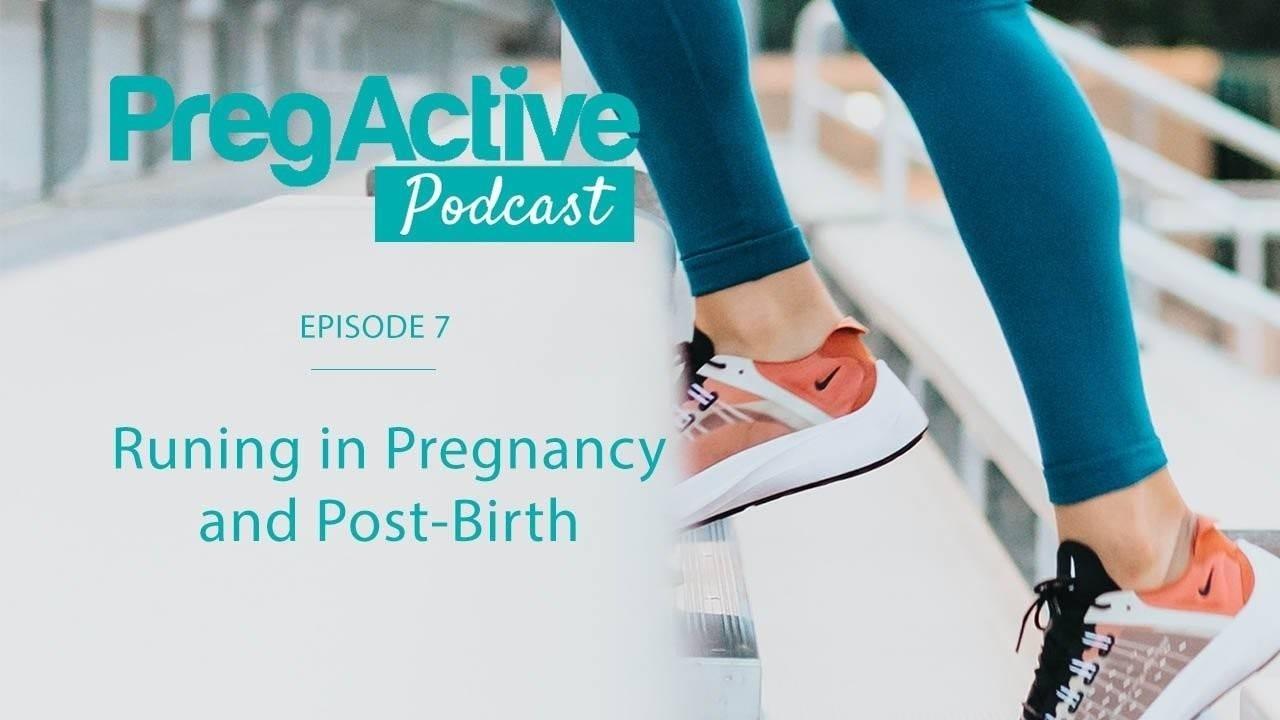
Can I Continue Running while Pregnant?
Is it safe to run while pregnant? The short answer is yes. But i much prefer other options that are low impact and more suited to your growing belly.
If you are an experienced runner then you can continue with a doctor's approval, but slow down and use supportive gear.
If you are a beginner, then you should opt for walking. The high impact of running is not ideal.
Chat to Your Doctor
As with any exercise when pregnant I want you to always discuss what you want to do with your OB/GYN first. Running when pregnant can sometimes be a controversial topic for several reasons.
Mostly due to the high-impact nature of running. I want you to listen to this incredible podcast as we interview our Women's Health Physiotherapist Beth on running in pregnancy (and after pregnancy).
Running while Pregnant
We provide valuable tips and safety guidelines for expectant mothers who want to continue their running routine during pregnancy.
It's important to listen to your body, stay hydrated, and consult with your healthcare provider before engaging in any physical activity.
We also cover the benefits of running and how it can help with overall health and well-being.
Listen to this podcast below to learn more about how to safely run while pregnant and maintain a healthy lifestyle for you and your baby.
Get Medical Approval
It's important to consult with your healthcare provider before starting any exercise routine during pregnancy. Once you get the green light, make sure to listen to your body.
If you feel any discomfort, dizziness, or pain, stop immediately and seek medical advice. Choose supportive and comfortable footwear to reduce the impact on your joints.
Stay hydrated
Avoid overheating by running during cooler times of the day and wearing breathable clothing.
Pace yourself and consider slowing down as your pregnancy progresses. Listen to your body and don't push yourself too hard.
Remember, every pregnancy is different, so it's essential to adjust your routine accordingly.
Risks of Running
If you weren't running before your pregnancy, then i recommend that you don't start now or at least until you speak to a doctor. Walking may be a better option.
1. Losing your balance. Your center of gravity changes with pregnancy so be careful when running on uneven or steep surfaces or rough terrain, as your joints are looser and more prone to injury.
2. Increased aches and pains. You may experience more pain around your pelvis or abdomen, called round ligament pain.
This is because of the round ligaments that help support the uterus. It can be more painful during vigorous exercise.
How to Run Safely
1. Run in proper running shoes. During pregnancy, your joints are more at risk of injury so make sure your running shoes are supportive.
You may need to buy a size up if your feet have swollen or flattened.
2. More support when it comes to your bra. Your breasts change as your pregnancy progresses, so check that your sports bra fits.
You could always seek more information about using a pregnancy support band which can help with lower back pain while running.
3. Stay hydrated and drink lots of water. It is important to drink plenty of water. Water is needed for amniotic fluid, higher blood volume, digestion, and the removal of waste.
4. Listen to your body. When I talk to our PregActive mamas I always make it clear that pregnancy isn't the time to try for a personal best.
Your body is already working harder than ever. Instead, take walk breaks, slow down, or add in extra recovery days.
Warning signs
- Bleeding from the vagina
- Painful uterus contractions
- Headache
- Chest pain
- Feeling faint or dizzy
- Calf pain or swelling
- Muscle weakness
- Shortness of breath
If you experience any of these symptoms, stop exercising and talk to your doctor.
It's important to know what the impacts running can have on the pregnant body. The questions to ask yourself are:
1. Prior level of fitness?
Pregnancy is not the time to increase the level of activity to such a high intensity, so if you have not run before pregnancy, it is now not the time to start.
2. Doctor's clearance?
Before lacing up your running shoes, it's imperative to consult with your healthcare provider.
They can provide personalized advice based on your medical history, current health status, and the progression of your pregnancy.
Your provider can also guide you on how to monitor your body's response to running and when it may be necessary to modify your routine for the safety of you and your baby.
You should ask about:
- heart rate targets
- environmental considerations
- any symptoms that would necessitate stopping running.
Ensure you get clearance from your health care professional to ensure there are no risks or complications.
3. Health care professional?
It could be a good idea to work with a women's health physiotherapist if you have been given clearance by your doctor to ensure your muscles (including pelvic floor) are in balance.
And you are not doing damage to your body with the effects of gravity and pressure.
4. When to Stop Running
There is no answer to this question as there is no magical 'week' to stop running. You need to tune in to your body, and this can't be expressed enough.
Listing to your body is the most important thing to do in your pregnancy.
Impact on Pelvic Floor
It may not have a negative impact on your pelvic floor in post-birth recovery, but it may.
The affect on your pelvic floor is one branch to consider about the when deciding to incorporate running into your routine.
The hormones in your body and weight gain are also things that can have an impact on your experience.
Pregnancy hormones impact the pelvic floor in a negative and positive way.
The force of gravity has an impact on your pelvic floor downwards, compared to swimming, Pilates or yoga.
If you're ready for some prenatal yoga workouts then check out my PregActive YouTube channel.
We know that if there is an excessive downward force on the ligaments that support your pelvic floor muscles can have a negative impact.
Working Out Too Hard
Be mindful of how hard you are working out in pregnancy and the impact that will have post-birth.
Staying fit and healthy is important, but putting too much pressure is not helpful and potentially could make your recovery harder post-pregnancy.
5. Adapt Running Routine
As you progress through each trimester, your body undergoes significant changes that necessitate adjustments to your running routine.
1. First trimester. In the first trimester, you may need to manage fatigue and nausea while running.
2. Second trimester. The second trimester often brings a burst of energy, but it's important to avoid overheating and to stay hydrated.
3. Third trimester. The focus should be on comfort and safety, avoiding high-impact activities and paying attention to balance and coordination.
It's also essential to modify intensity and duration as needed.
Some women may find that shorter, more frequent runs are more comfortable than longer outings. Incorporating walking intervals can help manage exertion levels.
6. Running after Pregnancy
People are in a rush to get moving, and often go too hard too soon. Going well at your six-week postnatal check with your doctor doesn't mean you should start running straight away.
You don't want to have regret later on that you went in too soon.
Just as in pregnancy, there is no magical number of weeks until you can start running postpartum.
How was your birth?
What are you demands at home, what support do you have, how are going with sleep and rest?
There is an individual journey for each woman and tuning inwards to how you are feeling as well as getting expert individual assessment from a trained health care professional is important.
Building up to running is also very important. You wouldn’t run straight after knee surgery. You go through recovery first.
That's why my Core Rehab program is a 12 module solution to help build your strength and stamina progressively.
Mode of Birth
Birth and delivery mode needs to be considered in terms of pelvic floor recovery post-birth. If you have had a caesarean, pelvic floor is still very important.
Why Do You Want to Run?
Often it's that feeling of freedom or a quick sweat that women want post-birth, which is why going for a run seems like a good idea.
Before you jump back into high intensity it’s important to progress strength. This is where my Core rehab program is here to help you reduce your risk of issues months, or even years down the track.
Your Vagina is Shaped Differently to Hers!
How can some women run with no issues and others it seems impossible. Sometimes women don't even know what is going on in their own body.
Everything looks okay on the outside, but on the inside it could be a prolapse waiting to happen.
Women's Health Physiotherapist have skills and tools to assess a women's pelvic health postpartum.
The dimensions of your pelvic outlet can change during your pregnancy and birth (regardless of vaginal or caesarean delivery).
If the pelvic floor is sitting in a wider space, it has less support and a higher risk of prolapse if there is too much pressure (running or high intensity exercise).
Genetics
You could be at a higher risk of the pelvic floor sitting in a position that doesn't support the pelvic organs as well as it once did.
You can still be strong, but if anatomically this outlet is wider, you are at higher risk.
It is known that proper recovery can help recover this (including corrective pelvic floor exercises), but it's even more effective if done straight after birth and not years down the track.
The body is so individual, never compare yourself to someone else. You don't know how their body is coping and need to be aware on how your body is going to cope.
You can't access yourself for this, which is why a pelvic floor examination is important.
Consequences
Going in too quickly to running or high intensity exercise could impact how you travel in consequences pregnancies and your recovery after those pregnancies.
It's something a lot of women don't think about until it's too late.
Having issues such as a dysfunctional pelvic floor or a pelvic organ prolapse can affect you mentally and emotionally. Be mindful of this before you head out for a run, a walk might be a better idea.
Advice to a New Mother
What's some advice you would give women wanting to get back into running?
Don't go in too quickly. Never has a woman regretted taking her time with postpartum recovery. Many women have regretted going in too quickly.
Your Pelvic Floor
How to know if your pelvic floor is strong enough to run is a question that you need expert, individual advice with.
It's not something you want to 'test out' for yourself. If you go for a short run and don't pee yourself, it's not a sign to then go for a longer run, as you could potentially be doing more damage.
In saying that, for some women running is fine and they have no issues ongoing. Just remember that - your vagina is not like hers; and not to compare yourself to someone else.
7. Supportive Running Bras
We're talking in respect to running, but this is important information for every day bra-wearing too. Seeing a specialist that can fit you is a really good idea, especially for new mothers.
Breast tissue are subject to gravity and it's important that we are supporting, but not putting too much pressure.
If you are just layering old crop tops, it might not be helping.
Your sports bra that you had before pregnancy isn't going to fit.
The support of the bra itself needs to be around the torso area. It's like wearing a backpack, the straps around the shoulders shouldn't be doing all the work.
Think about the compression, you don't want to be blocking your ducts that can increase your changes
Feeding before you run is important.
Don't run if you are due to feed.
Making sure you get fitted properly is important. A sports bra that can work with your breasts as they fill and release if breast feeding is also something to consider.
Podcast duration: 32:31
Beth Scott is a Women's Health Physiologist with over 10 years' experience and a strong passion in helping women, to stay healthy and active, particularly in the perinatal period.
8. Running Surfaces
Choosing the surface that you run on is important. Hard concrete is not forgiving. If you have an athletics track near you or running on gravel or grass can be a softer option.
Getting a new pair of shoes is important. You need optimal support and you may have potentially changed size.
It is deemed safe to run in pregnancy if you have been running regularly pre-pregnancy. I would prefer you to avoid this high-impact exercises and replace it with walking.
But if you would like to run then I have this Podcast for you titled running in pregnancy and after childbirth with Women's Health Physiotherapist Beth Scott.
Dr Ini Thevathasan
Below I chat with Obstetrician Dr Ini Thevathasan about running during pregnancy.
I personally don't recommend running in pregnancy as it does increase the pressure on your joints. Brisk walking is potentially going to give your body a more gentle, but very effective workout.
If you do decide to run, I highly recommend you talk with your health care provider about your individual situation, and also think about some of the following questions:
- What footwear are you wearing?
- What track / ground are you running on?
- Are you wearing a supportive bra?
- There is no 'number' on how many weeks you can run until, that is completely individualized and needs to be assessed by your Women's Health Physiotherapist.
9. Is it bad for me to run during pregnancy?
In this video I chat with one of our OBGYNs about running when pregnant.
Video duration: 5 minutes 15 seconds
10. Listen to Your Body
Pregnancy is a time to tune into your body's signals more than ever.
Warning signs that it's time to slow down or stop running include dizziness, unusual shortness of breath, chest pain, contractions, vaginal bleeding, fluid leakage from the vagina, and decreased fetal movement.
It's also important to stop if you feel pain or discomfort that is out of the ordinary.
Listening to your body and respecting its limits can help prevent injury and ensure a healthier pregnancy. If any concerns arise, it's crucial to contact your healthcare provider immediately.
Remember, your health and the baby's well-being are the top priorities.

